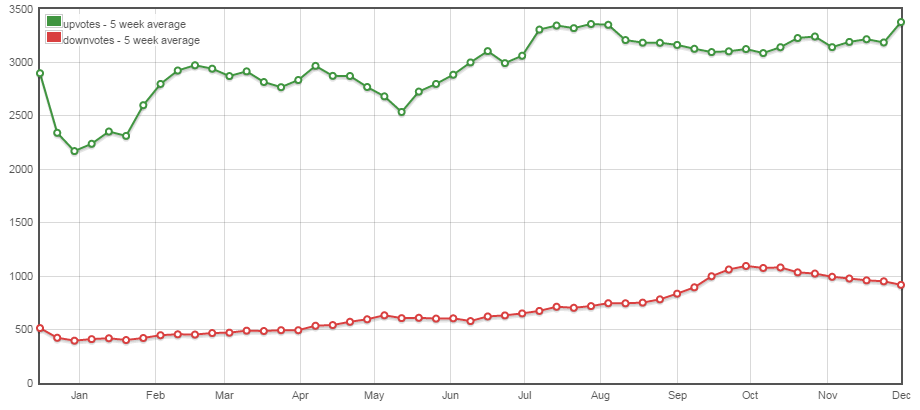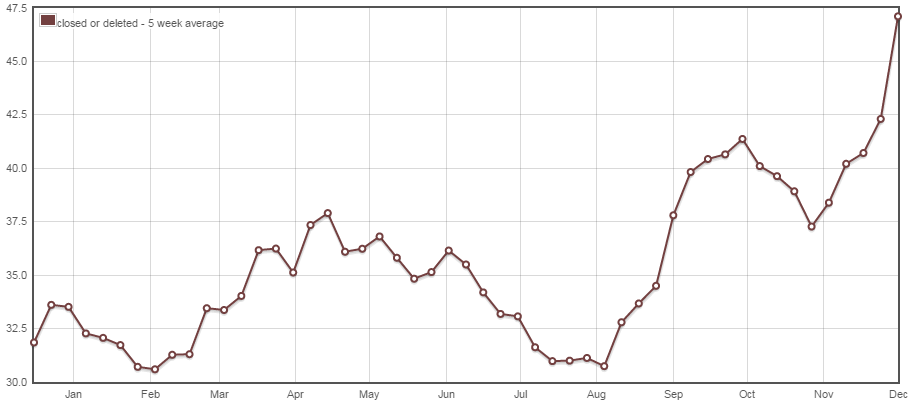I was wondering if there is some place that has voting statistics / general usage statistics on Serverfault.
Possibly in relation to its closest sister sites: StackOverflow and Super User.
I'm mostly curious about quantifying the "decline of Serverfault" I saw some posts about.
I cobbled together some statistics using the data.stackexchange (the queries need a lot of work) interface, but the results are so much in line with the results from the main StackOverflow website, it's hard to really get a pulse on it.
In the lengthy thread started by Shane Madden there was a lot of statistics / graphs about the decline of Serverfault. Mainly based on traffic vs posts. Related to the google results that lead to ServerFault.
I was trying to find out if I can also see some indications that Serverfault has become more negative in the last 6 months. But all I can see is a more negative voting trend across most of StackExchange.
Whether I look at StackOverflow / SuperUser or ServerFault... Downvotes are up, up votes are down.
And honestly, isn't that kind of normal? As more and more questions have a direct answer on the sites. More and more questions will get a down vote with a "Duplicate" stamp on them.
Newer questions about simpler stuff will get down voted or ignored by the more senior members, and will be a lot less likely to receive attention / foster newer members.
The attitude that you leave simple questions to newer members might not be the right one.
A person who asks a question here, and does not receive an answer is a lot less likely to become a community member. However most people who ask questions here could be valuable community members. Given some time to garner some more experience.
Maybe the right response is to have more open discussions on newer questions, that further push the newer members towards the answers instead of rehashing old answers. Coupled with having those questions closed after a period of time, some-how, so that the current repository of high quality questions and answers does not get diluted. Not immediately closing duplicate questions might help in this. Perhaps having them removed from the "active" board, but allowing further discussion.
Regardless, I would like more statistics. The problem is quite interesting and I've seen suggestions that indicate the correct solution would be voting.
Yet on the flip side we have people such as Michael Hamtpon who correctly believe we shouldn't vote on what we don't have a thorough understanding of (which makes loosening the scope seem like a bad idea).
So maybe voting isn't the answer, maybe limiting the scope is. As a larger percentage of the users understands the subject matter, they will be able to voice more targeted opinions.
I've also seem a few posts that compare ServerFault to StackOverflow, that seem to be more about the way a few users perceived the two, without really much data behind it.
So... in the spirit of minimal understanding, does anyone have more data?
Have similar inquiries been made before? (In which case my apologies, I am horrible at finding stuff on StackExchange at times)
Apologies if the post is somewhat all over the place, I sometimes have issues with sticking to one train of though.


